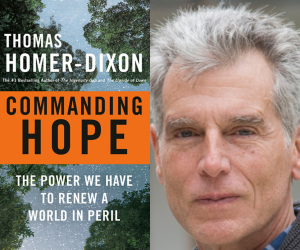New research suggests that people with a certain genetic variation may be more disposed to spotting an angry face in a crowd or perceiving hazards in their environment than others.
“It’s like seeing the world through gene-tinted glasses,” says University of British Columbia psychology professor Rebecca Todd, author of a recent paper which finds that some people are genetically more attuned to emotionally arousing aspects of the world, such as danger.
Before conducting the study, Todd had noticed that people who have the ADRA2b deletion variant were more likely to suffer from flashbacks or traumatic memory than those without the variant. This led her to wonder if the reason these people experienced these memories more deeply was because they experienced life more intensely.
Todd and a team of researchers conducted a test among 207 participants. Participants were shown positive, negative and neutral words flashing on a screen.
Todd says that although many people perceived the positive words, people with the genetic variation were better at perceiving the negative words, which included terms like enraged, horror and betray. “A lot of them had to do with danger,” Todd says.
She says that our brains have filters to break down the massive load of information we take in every moment, but that everyone’s filter operates differently. “What we see is actually highly filtered by our brain, and it’s filtered to what’s important to us. If you’re hungry, you’re more likely to see food in a crowded market.” Her study was a way to try to figure out “the tuning of the doors of perception.”
The results of the study could mean that the gene allows people to perceive a heightened sense of danger. But, Todd says, the test subjects were mostly undergraduate university students — a group she says tends to see the world more negatively. That means it is uncertain whether the gene measures people’s ability to perceive danger or whether it helps people perceive what is currently more important to them.
“(The results are) hard to know how to interpret,” she says. Having the genetic varation doesn’t necessarily make someone more alert. Todd points out that life experience and culture also have a huge effect on the way we see things.
But as far as Todd herself is concerned, it seems to make anecdotal sense at least. She doesn’t have the genetic variation, and jokes that she also has a terrible emotional memory. “I always seem to be offending people by forgetting emotional memories.”
Now she may have a good excuse.




